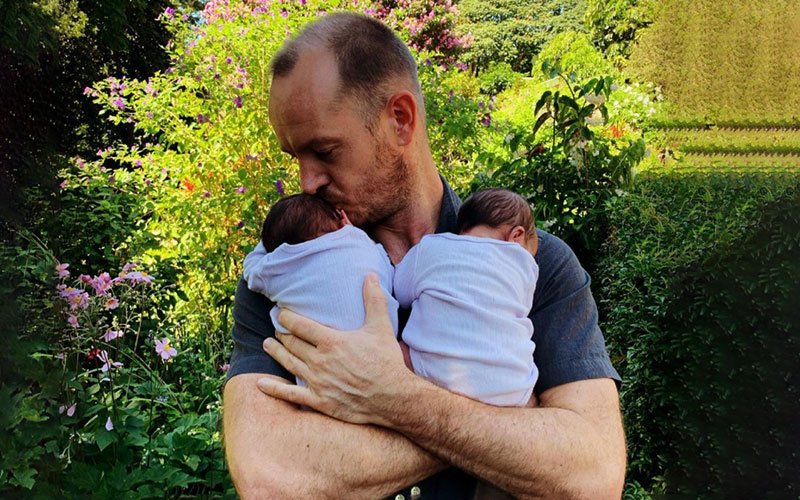A Namibian court ruled Monday against a gay couple demanding the right to bring their infant daughters home after being born to a surrogate in South Africa. The Namibian Ministry of Home Affairs says the girls are not Namibian citizens, despite being born to a Namibian father.

Namibian Phillip Lühl hasn’t been able to bring his twin daughters home to meet the rest of their family since they were born in Durban, South Africa, in March. (Photo courtesy of Phillip Lühl via Instagram.
Phillip Lühl is a Namibian citizen married to Guillermo Delgado, a Mexican national. Together they also have a two-year-old son who was also born to a South African surrogate. Right now the family is separated because their twin daughters were born in Durban, South Africa, and the Namibian government has refused to issue travel documents to them. Lühl is in South Africa with their daughters and Delgado is in Namibia with their son.
Lühl said the couple is deciding on its next steps.
“(It’s an) unexpected judgment and, on a personal level, quite a big blow to us,” he said after the decision.
Namibia does not recognize same-sex marriage or permit surrogacy arrangements. Namibia also maintains a prohibition against sodomy under its common law system, although the government is not believed to have pursued charges of sodomy in over 25 years. In 2019, the Ombudsman of Namibia echoed calls from the United Nations Human Rights Committee for the sodomy ban to be repealed.
South Africa does recognize surrogacy and has issued birth certificates to all three children with both Lühl and Delgado listed as parents. But the Namibian government is insisting that the couple prove a genetic link between the children and Lühl before issuing citizenship documents. Lühl says there is no basis for the requirement of proof of a genetic link in Namibian law.
“We rejected the notion that a genetic link or DNA test will prove my parentage,” Lühl said to Reuters. “We rejected that because of the fact that one of us has to have a genetic link. It doesn’t mean that one of us is a parent. We are both parents legally.”
Lühl says that’s discriminatory, since heterosexual families are not required to prove genetic links to their own children in order to pass on their Namibian citizenship.
The judgement effectively leaves all three children stateless. They would be entitled to Mexican citizenship through Delgado, but they would have to apply at the embassy in Pretoria, South Africa, and their son cannot cross the border to reach Pretoria because he lacks travel documents.
Lühl and Delgado are no strangers to the Namibian court system. They already have separate cases before the court seeking continued right of Delgado to reside in Namibia and recognition of the Namibian citizenship of their son.
Additionally, three other cases are before the High Court of Namibia seeking recognition of same-sex marriage.
COMMENTS